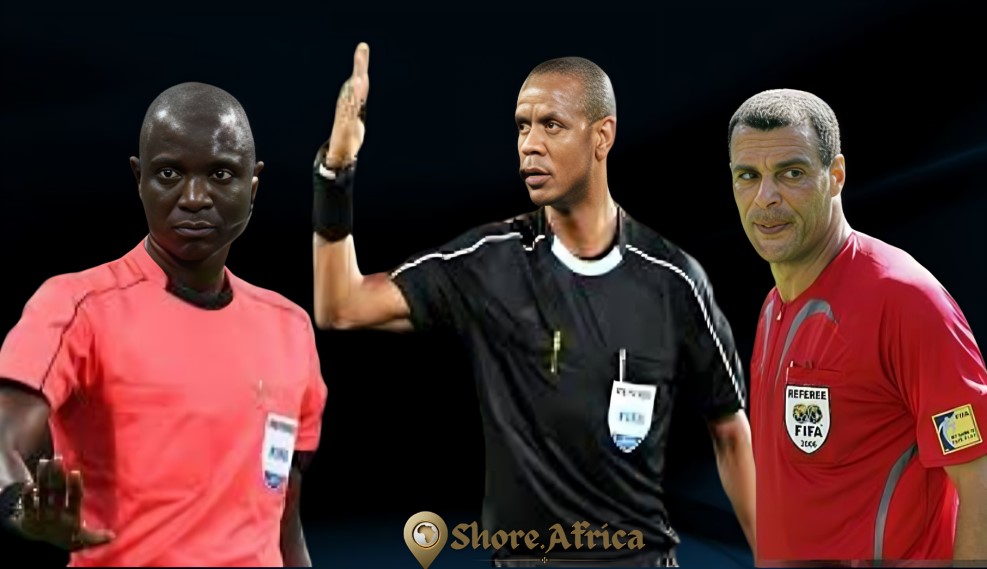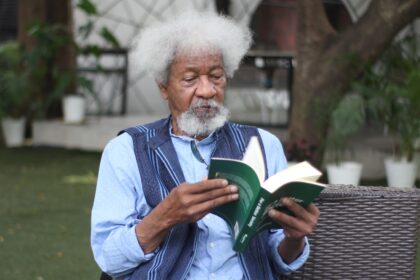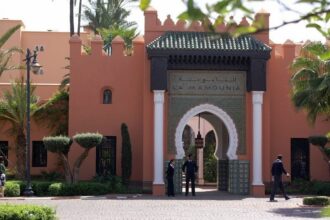At a Glance
- African referees have consistently broken ground by officiating high-stakes World Cup matches across multiple tournaments.
- Their performance challenged stereotypes, earning global respect for discipline, fairness, and composure under pressure.
- These trailblazers opened doors for future African officials in FIFA’s top-tier officiating ranks.
The FIFA World Cup, football’s most prestigious international tournament, is renowned for showcasing the world’s elite players but behind every game lies the critical role of referees who uphold fairness, integrity, and discipline on the pitch.
Over the years, African referees have broken barriers on this global stage, gaining recognition for their skill, composure, and pivotal contributions to football history.
From historic firsts to landmark matches, these five African referees have shaped the legacy of African officiating at the FIFA World Cup, cementing their status as trailblazers in international football.
Bakary Gassama (Gambia)
Bakary Gassama stands out as arguably the most prominent African referee in FIFA World Cup history.
The Gambian official has officiated at three consecutive World Cups — 2014, 2018, and 2022 — showcasing his expertise in managing high-pressure matches on football’s biggest stage.
At the 2018 Russia World Cup, Gassama became the first African referee in decades to oversee knockout stage matches, a milestone that underscored Africa’s growing influence in global football refereeing.
Known for his calm demeanor, clear communication, and strict but fair decision-making, Gassama inspires aspiring referees across Africa.
Janny Sikazwe (Zambia)
Zambian referee Janny Sikazwe made history at the 2018 FIFA World Cup in Russia by becoming the first African official to referee two group-stage matches in a single tournament.
His remarkable fitness and sharp whistle earned widespread praise from players, coaches, and analysts alike.
Sikazwe expertly controlled high-tension games such as Poland vs. Japan and Serbia vs. Switzerland, demonstrating exceptional agility and fairness.
His reputation was further bolstered by officiating the 2017 Africa Cup of Nations (AFCON) final, cementing his place among Africa’s elite referees.
Essam Abd El Fatah (Egypt)
Essam Abd El Fatah broke barriers as one of the first African referees recognized at the FIFA World Cup.
Known for his discipline and authority, he challenged stereotypes about African officials managing high-stakes matches with European football powers.
Abd El Fatah officiated the 2006 World Cup match between Australia and Japan, setting a precedent for greater African referee inclusion in FIFA’s elite ranks and advancing the continent’s football legacy.
Daniel Bennett (South Africa)
Daniel Bennett made history as the first South African referee to officiate at a FIFA World Cup, doing so at the 2010 tournament hosted in South Africa — the first World Cup held on African soil.
His calm and commanding style earned praise globally, as he skillfully managed matches featuring some of the world’s biggest football stars.
Bennett’s 2010 World Cup appointment was a breakthrough moment for South African and African refereeing, inspiring a new generation of officials across the continent to aim for the global stage.
Djamel Haimoudi (Algeria)
Djamel Haimoudi made history as the first African referee to officiate the opening match of a FIFA World Cup in 2014.
His experience spans multiple Africa Cup of Nations tournaments and two FIFA World Cups.
Haimoudi’s authoritative style and consistency under pressure helped cement Africa’s reputation for producing world-class referees.
His performance in Brazil earned praise for maintaining control in highly intense matches, setting new standards for African officials.















